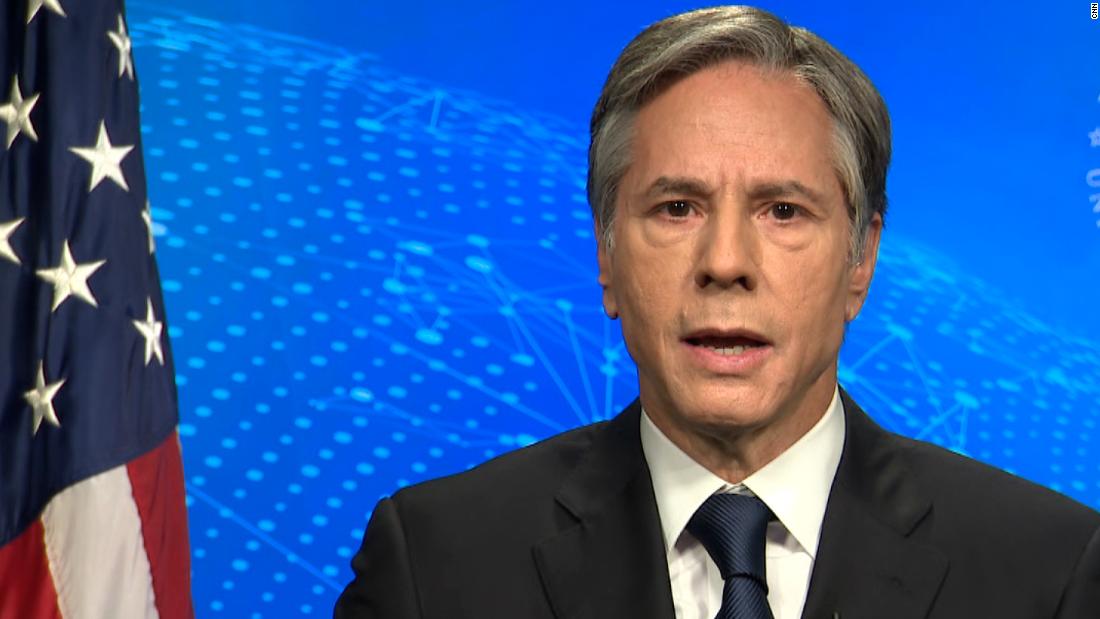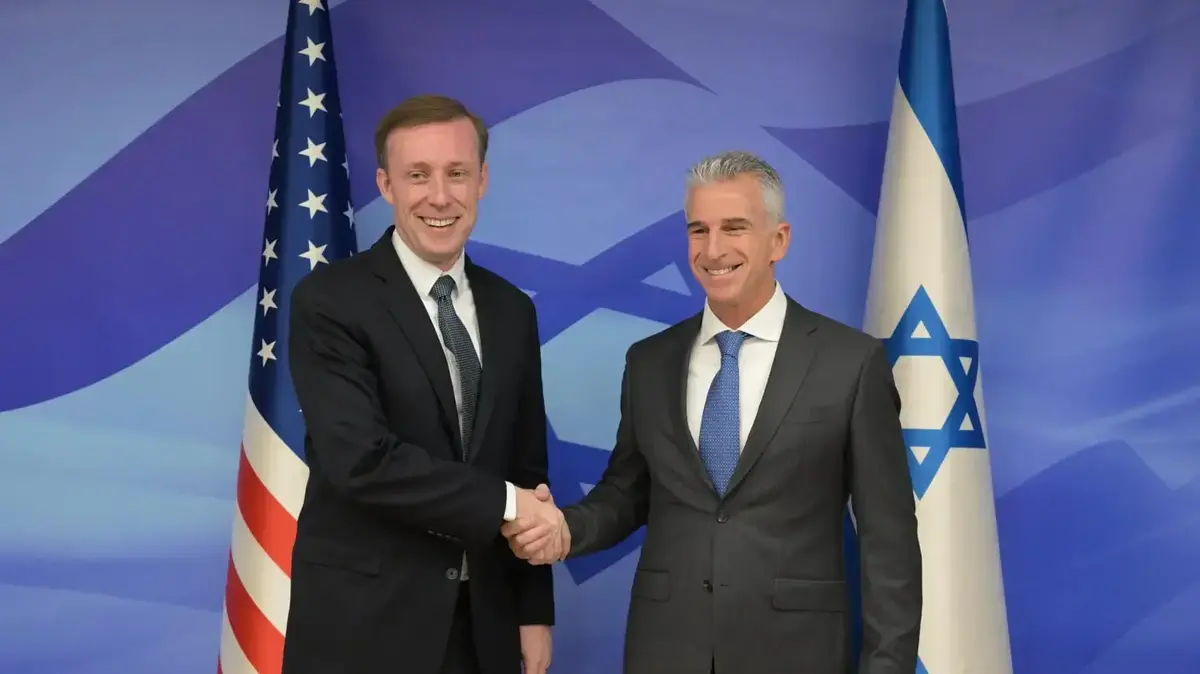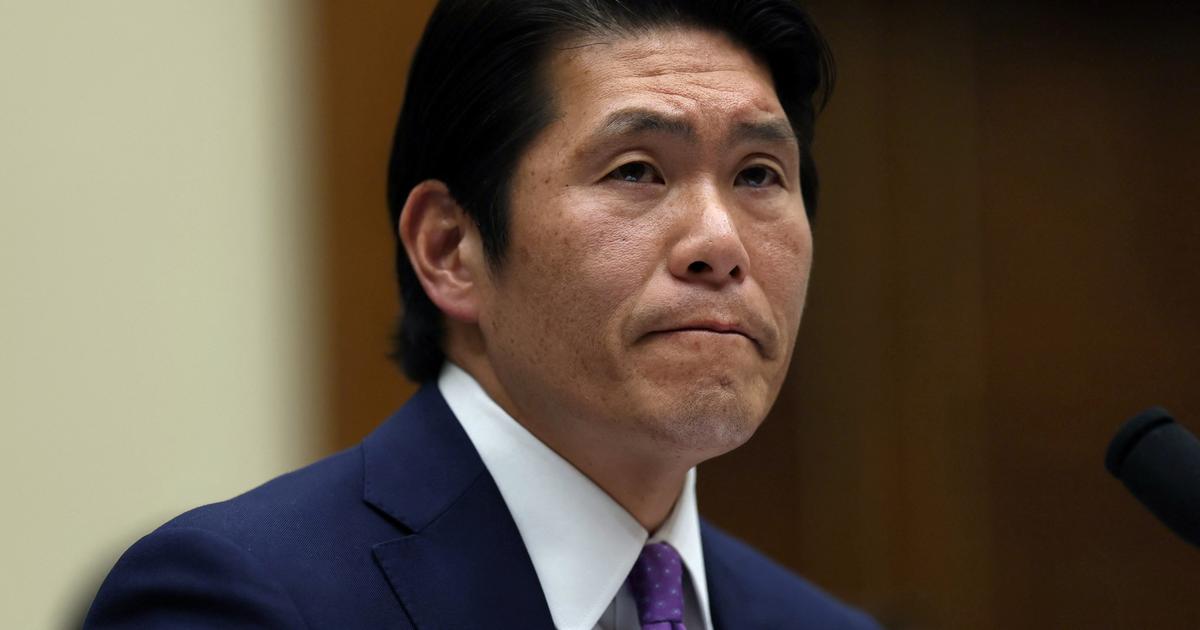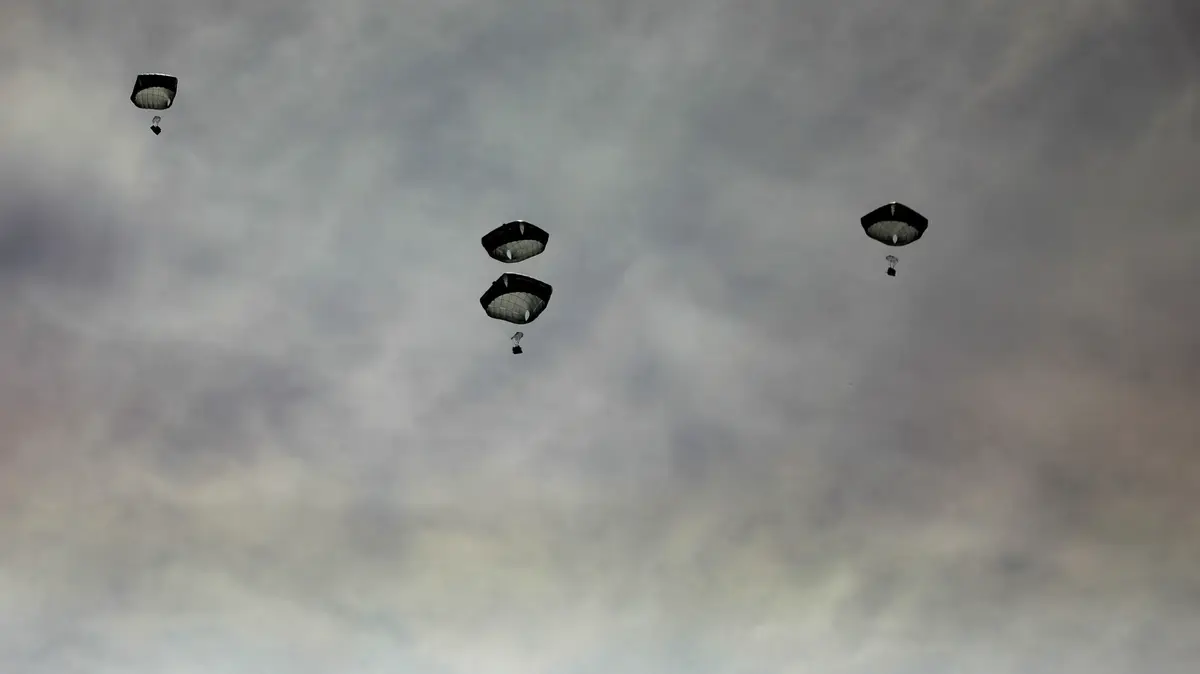The Taliban's plan to take over Afghanistan 2:56
(CNN) -
President Joe Biden and his administration battled Sunday to project order amid a rush to evacuate from Afghanistan as Taliban fighters entered Kabul.
The rapid decline of Afghanistan's national forces and government has come as a shock to Biden and senior members of his administration, who just last month believed it could be months before the civilian government in Kabul fell, allowing a period of time after the US troops left before the full consequences of the withdrawal were exposed.
Now, months after his initial declaration that the 2,500 US troops would be out of Afghanistan by the end of the summer, a total of 6,000 troops are expected to help facilitate the evacuation.
And officials are frankly admitting they miscalculated.
"The fact is that we have seen that that force has not been able to defend the country," Secretary of State Antony Blinken told CNN's Jake Tapper, referring to Afghanistan's national security forces.
"And that has happened faster than we anticipated."
Biden is expected to address the nation in the coming days about the crisis in Afghanistan, according to a senior administration official, though a final decision on a speech has not been made and the president has yet to interrupt his summer vacation in Camp David.
advertising
ANALYSIS |
Biden's failed Afghanistan withdrawal is a long-brewing disaster at home and abroad
One option under discussion is for Biden to return to the White House, although the official cautioned that they had not entirely ruled out making the comments from the presidential vacation home, where he was photographed Sunday receiving a report from his national security team.
In the photo, Biden appeared alone in a polo shirt in front of a large bank of monitors.
The political risks for Biden are uncertain;
Most Americans say in polls that they support the withdrawal of troops from Afghanistan, and Biden's aides have calculated that the country shares his weariness from prolonging a 20-year conflict.
However, the chaotic scenes that unfold as the war ends, evoking the fall of Saigon in 1975, an image that haunted Biden as he considered a withdrawal earlier this year, will surely follow Biden as the Taliban assert control over large swaths of the country.
Some members of Congress are already demanding more information from the administration about how their intelligence may have so misjudged the situation on the ground, or why stronger contingency plans were not put in place to evacuate the Americans and their allies.
During a briefing for lawmakers on Sunday, senior administration officials faced harsh questions about the withdrawal plans, including the evacuation of Afghan interpreters and others who aided in the US war effort.
House Minority Leader Kevin McCarthy lobbied officials including Defense Secretary Lloyd Austin and Chairman of the Joint Chiefs of Staff Gen. Mark Milley on why the process happened so quickly.
"We didn't give them air coverage. You say you had that plan. No one would plan for this outcome. The ramifications of this for the United States will continue for decades and will not just be in Afghanistan," McCarthy said, according to a Republican source on the call.
Biden is not scheduled to return to the White House from Camp David until later this week and has not spoken publicly about the situation in Afghanistan since Tuesday.
How is it that the Taliban gained ground so quickly in Afghanistan?
A variety of options are being debated, about returning to Washington or addressing the nation, but several officials said events were too fluid and no final decisions were made until Sunday afternoon.
While Biden may receive the same level of reporting from Camp David, as he has been doing all weekend via secure video conferencing, officials are aware of what the president looks like to be out of town during this dangerous moment.
Several administration officials have also been on vacation, but began returning to work remotely on Sunday or in the west wing.
A White House official told CNN on Sunday that the president "has spoken with members of his national security team about the situation in Afghanistan and will continue to receive updates and information throughout the day."
"He is deeply committed since Camp David," said a senior administration official, who did not rule out the president's return to the White House.
The idea that the civilian government headed by former President Ashraf Ghani could not resist the advances of the Taliban comes as no surprise.
Intelligence assessments over the past year have offered different timelines for what many national security officials considered inevitable.
Biden himself has said repeatedly over the past few months, including when Ghani visited him in the Oval Office this summer, that Afghanistan's leaders would have to reconcile their differences if they had any hope of maintaining power.
Minute by minute: What's happening in Afghanistan?
And Blinken said on Sunday that "we have known it all the time, we have said it all the time, including the president, that the Taliban were in their greatest position of strength than at any time since 2001, when they were in charge of the country for last time. That's the Taliban that we inherited. And then we saw that they were very capable of going on the offensive and starting to take back the country. "
However, the fall and collapse of the Afghan army has happened much faster than Biden or his team expected.
Ghani left the country on Sunday for Tajikistan, two sources told CNN.
The president of the Higher Council for National Reconciliation of Afghanistan, Abdullah Abdullah, referred to him in a video statement as "former president".
US officials have expressed dismay at Ghani's inability to protect key cities and regions from the Taliban, despite having established a strategy to do so during his communications with Biden and other top American leaders.
What will happen now to women in Afghanistan?
2:35
Biden used a question-and-answer session in the East Room of the White House just over a month ago to downplay the possibility that the Afghan government could collapse and the Taliban could take control, saying the result was not inevitable. .
He had insisted that "there would be no circumstances" in which American personnel were evacuated from the roof of his embassy, rejecting any comparison with the fall of Saigon.
Last week, the president told reporters that there was still a chance that the government could resist, saying that a newly installed military commander was a "serious fighter."
And as recently as Friday, the administration said that the Afghan capital, Kabul, was not in an "environment of imminent threat."
On Sunday afternoon, the United States completed the evacuation of its embassy in Kabul as Taliban fighters entered the city.
CNN saw US helicopters taking out embassy employees to evacuate them from the country amid the Taliban advance.
The withdrawal of embassy staff marks a rapid acceleration of the process that had only been announced on Thursday, and is a situation that many State Department security officials expected to happen given the speed with which the Taliban have gained territory in Afghanistan. in the last days.
After Saturday's briefing, Biden authorized additional troops to Afghanistan "to ensure that we can have an orderly and safe withdrawal of American and other allied personnel and an orderly and safe evacuation of Afghans who assisted our troops during our mission. and those at particular risk from the advance of the Taliban. "
But the administration official said the White House "did not want this to become the Katrina of the Biden administration," a reference to the 2005 hurricane that the Bush administration was slow to respond to during its August vacation.
Situation in Afghanistan with the Taliban: Here's what you need to know
But a Democratic source on the call from lawmakers Sunday said Austin defended the administration's actions as an extension of the withdrawal schedule initially set during the Trump administration.
The secretary also said that the United States maintains the ability to conduct air strikes to respond to any action by the Taliban that interferes with the evacuation.
"We will defend ourselves and our people and any attack against an American will have a firm and immediate response," he said.
Biden has been adamant in his plan to withdraw US troops from the country.
In a statement Saturday, he said he could not justify keeping US forces there for the indeterminate amount of time that it could take to train Afghans further to defend themselves.
"Another year, or five more years, of a US military presence would not have made any difference if the Afghan army is unable or unwilling to defend its own country," Biden wrote in a statement from Camp David, where he is spending a long weekend.
"And an endless American presence in the midst of another country's civil conflict was not acceptable to me."
In his statement, Biden attributed part of the blame for the current situation to his predecessor, Donald Trump, who negotiated a deal with the Taliban to withdraw US troops by May 1, 2021. Aides have said they stay well beyond from that date it would open the United States forces to attack.
But the president went beyond simply criticizing the deal;
He also accused Trump of leaving the Taliban in their "strongest military position" since 2001 and mentioned that Trump invited Taliban leaders to meet at Camp David in 2019.
It was a sign that, amid torrents of criticism - from U.S. allies abroad, Republicans, national security experts and human rights groups - Biden was seeking to share the blame for how the war is ending. longest in the United States.
Everything you need to know about Afghanistan, the "tomb of empires"
Attendees say Biden has shown no hint of self-doubt after announcing in April that all American troops would leave Afghanistan by September 11, a symbolic deadline 20 years after the terror attacks that started the war.
CNN's Jeremy Diamond, Jasmine Wright, Devan Cole, Daniella Diaz, Melanie Zanona, Lauren Fox, and Jennifer Hansler contributed to this report.
Taliban









